Les films ayant le thème "Maltraitance des enfants", triés par recette
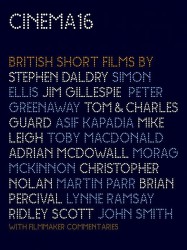
About a Girl (2001)
, 9minutesRéalisé par Brian Percival
Origine Royaume-uni
Genres Drame
Thèmes L'enfance, Maltraitance des enfants
Acteurs Ashley-Jade
About a Girl opens with a striking shot of a silhouette — against a skyline of clouds above a field — of a girl singing the Britney Spears song "Stronger" and doing the dance routine. It cuts abruptly to a close-up of the girl talking in a strong Mancunian accent to the camera: "If Jesus were alive today — right, he'd probably be a singer." She is walking against a backdrop of Manchester's industrial landscape, talking non-stop, mixing wry statements about stardom and singers with random quotes from her parents and descriptions of her life: her relationship with her dad, her frustrations with her mum, her desire to become a famous singer, the band she has formed with her friends. Things any 13-year-old might talk about. Her monologue is interrupted and intercut with different scenes of her with her family and her dad; her in a perfume department, sitting on a bench singing "Stronger" again, and on the back of a bus with her girlfriends singing "Oops!... I Did It Again" by Britney Spears and doing the routine.
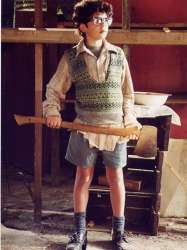
Rainbow Bird and Monster Man (2002)
Genres Documentaire
Thèmes L'enfance, Documentaire sur le droit, Documentaire sur une personnalité, Documentaire sur la maltraitance des enfants, Maltraitance des enfants
The story begins with Tony recalling himself as a child in the 1960s at the age of four, coming from an aloof family in Trentham, Victoria. Tony's father was an agricultural labourer who suffered from alcoholism. Tony, without an older male role model, originally felt warm attachment to the other main figure in the film, his father's workmate and drinking friend Gordon Kerr. Then on one night Gordon - who was to be looking after the child - raped Tony. Tony and his younger brother continued to be sexually assaulted by Gordon for the following ten years until his parents unexpectedly saw this for themselves and were forced to acknowledge what was happening.

Twist of Faith (2005)
, 1h27Réalisé par Kirby Dick
Origine Etats-Unis
Genres Documentaire
Thèmes L'enfance, Religion, Documentaire sur le droit, Documentaire sur une personnalité, Documentaire sur la religion, Documentaire sur la maltraitance des enfants, Maltraitance des enfants
Acteurs Jeff Anderson

Bunso (2005)
, 1h4Origine Philippines
Genres Documentaire
Thèmes L'enfance, La prison, Documentaire sur le droit, Documentaire sur une personnalité, Documentaire sur la maltraitance des enfants, Documentaire sur la police, Maltraitance des enfants
Ditsi Carolino received the Best Director award for the documentary film Bunso (The Youngest) at the OneWorld 2005 documentary films festival held in Prague, Czech Republic.

Lost Children (2005)
, 1h37Réalisé par Ali Samadi Ahadi
Genres Documentaire
Thèmes Afrique post-coloniale, L'enfance, Documentaire sur le droit, Documentaire sur la guerre, Documentaire historique, Documentaire sur une personnalité, Documentaire sur la maltraitance des enfants, Maltraitance des enfants

Aruba (2006)
, 11minutesOrigine Canada
Genres Drame
Thèmes L'enfance, Maltraitance des enfants
Acteurs A.J. Saudin, Devon Bostick, Soo Garay
Milan (A.J. Saudin) is an 11-year-old boy who dreams about escaping a violent home life. When his parents fight or take drugs, or when bullies pick on him in school, he finds peace in contemplating a postcard with an idyllic picture of the island of Aruba, and imagines himself in that faraway place as a way to survive.

Invisible Children (2006)
, 55minutesRéalisé par Jason Russell
Origine Etats-Unis
Genres Documentaire
Thèmes Afrique post-coloniale, L'enfance, Documentaire sur le droit, Documentaire sur la guerre, Documentaire historique, Documentaire sur une personnalité, Documentaire sur la politique, Documentaire sur la maltraitance des enfants, Politique, Maltraitance des enfants
Acteurs Jason Russell
In the spring of 2003, Jason Russell, Bobby Bailey, and Laren Poole traveled to Africa to document the War in Darfur. Instead, they changed their focus to the conflict in northern Uganda, Africa's second longest-running conflict after the Eritrean War of Independence. The documentary depicts the abduction of children who are used as child soldiers by Joseph Kony and his Lord's Resistance Army (LRA). This film centers around a group of Ugandan children who walk miles every night to places of refuge in order to avoid abduction by the LRA.
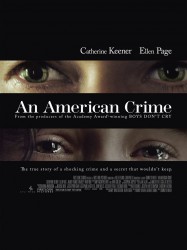
An American Crime (2007)
, 1h38Réalisé par Tommy O'Haver
Origine Etats-Unis
Genres Drame, Biographie, Horreur, Policier
Thèmes L'enfance, Maltraitance des enfants
Acteurs Ellen Page, Catherine Keener, Hayley McFarland, Ari Graynor, Scout Taylor-Compton, James Franco
À l'été 1965, M. et M Likens confient leurs filles Sylvia et Jenny à la garde d'une femme au foyer, Gertrude Baniszewski. Pendant plusieurs mois, cette dernière, aidée de ses enfants, séquestrera et torturera Sylvia à mort dans la cave de leur maison en Indiana.
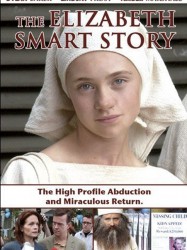
Un étrange enlèvement (2003)
, 1h29Réalisé par Bobby Roth
Origine Etats-Unis
Genres Drame, Policier
Thèmes L'enfance, Maltraitance des enfants
Acteurs Dylan Baker, Lindsay Frost, Amber Marshall, Tom Everett, Hannah Lochner, Tyler Kyte
Ce téléfilm raconte la quête pour sauver Elizabeth et arrêter son ravisseur.

Aurore (2005)
, 1h55Réalisé par Luc Dionne
Origine Canada
Genres Drame, Biographie, Action, Mélodrame
Thèmes L'enfance, Maltraitance des enfants
Acteurs Serge Postigo, Marianne Fortier, Rémy Girard, Stéphanie Lapointe, Yves Jacques, Sarah-Jeanne Labrosse
Dans les années 1910, à Sainte-Philomène de Fortierville, Aurore Gagnon, six ans, vit dans une famille unie et heureuse. En 1918, sa mère, Marie-Anne Caron, décède de la tuberculose. Fraîchement veuf, son père, Télesphore Gagnon, épouse discrètement sa belle-cousine, également veuve récente, Marie-Anne Houde, mère de deux enfants qui est originaire du village voisin : Sainte-Sophie-de-Lévrard. Après la mort inexpliquée de deux enfants de Télesphore, Joseph et Lucina Gagnon, la marâtre s'en prend à Aurore, maintenant âgée de dix ans, qui est martyrisée avec la complicité et l'aide occasionnelle de son père.

Must Read After My Death (2007)
, 1h14Origine Etats-Unis
Genres Documentaire
Thèmes L'enfance, Documentaire sur le droit, Documentaire sur une personnalité, Documentaire sur la maltraitance des enfants, Maltraitance des enfants
When a Hartford couple turns to psychiatry for help with their marriage, things quickly spiral out of control. Couples counseling, individual and group therapy and 24-hour marathon sessions ensue. Their four children suffer and are given their own psychiatrists. Pills are prescribed, people are institutionalized, shock-therapy is administered. This is an intimate story in the family’s own words, from an extraordinary collection of audio recordings and home movies, illuminating a difficult and extraordinary time.
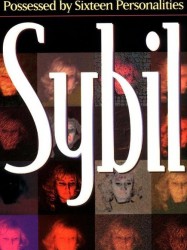
Sybil (2007)
, 3h18Réalisé par Joseph Sargent
Origine Etats-Unis
Genres Drame
Thèmes L'enfance, Maladie, Psychologie, Folie, Maltraitance des enfants
Acteurs Tammy Blanchard, Jessica Lange, JoBeth Williams, Ron White, Fab Filippo, Brian Downey
Le film est basé sur le livre Sybil de Flora Rheta Schreiber paru en 1973. Sybil Dorsett est une jeune femme diplômée qui souffre d'étranges absences et demande de l'aide à une psychiatre : le Dr Cornelia Wilbur. On suit la longue psychothérapie de Sybil, au cours de laquelle la thérapeute va mettre en évidence un trouble de la personnalité multiple, en l'occurrence, chez Sybil, ce sont dix-sept personnalités différentes qui prennent le contrôle d'elle-même. Certaines sont psychotiques et veulent la tuer. Ces troubles sont liés à des abus sexuels durant l'enfance. La thérapie va mener à la réintégration progressive de ces personnalités en une seule.

Hakani: A Survivor's Story (2008)
Réalisé par David L. Cunningham
Origine Bresil
Thèmes L'enfance, Documentaire sur le droit, Documentaire sur une personnalité, Documentaire sur la maltraitance des enfants, Maltraitance des enfants
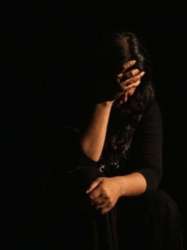
Honour Me (2008)
Origine Royaume-uni
Genres Documentaire
Thèmes L'enfance, Documentaire sur le droit, Documentaire sur une personnalité, Documentaire sur la maltraitance des enfants, Maltraitance des enfants
 , 56minutes
, 56minutesRéalisé par Robert Koenig
Origine Etats-Unis
Thèmes L'enfance, Documentaire sur le droit, Documentaire sur la guerre, Documentaire historique, Documentaire sur la politique, Documentaire sur la maltraitance des enfants, Politique, Maltraitance des enfants
Returned: Child Soldiers of Nepal's Maoist Army tells the personal story of Nepali boys and girls as they attempt to rebuild their lives after fighting in the Nepalese Civil War. Through the voices of former child soldiers, the film examines why these children joined the Maoists and explores the prevention of future recruitment.
 Connexion
Connexion